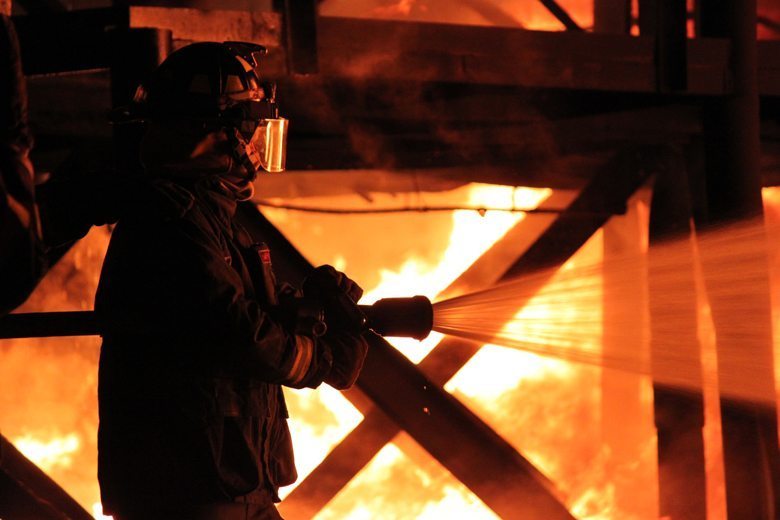

Yemen’s oil sector has suffered another setback after an explosion and fire ripped through the Aden refinery, the country’s largest on 11 January, destroying a number of storage tanks.
The refinery in the southern port city, is Yemen’s only downstream complex, producing as much 150,000 barrels a day (b/d) of refined products for domestic consumption.
Sources in the embattled country, now nearly four years into a protracted war between Houthi militants and Saudi-backed forces, said four of the refinery’s storage tanks had been damaged in the fire.
This includes a tank capable of holding 2,500 tonnes of fuel. Some 1,200 tonnes of fuel in the tank had been completely burned in the fire.
The fire was brought under control, according to Nasser Shayef, the refinery's information officer. 20 people were injured in the incident.
Shayef would not comment on the cause of the fire, but its is reported to have started after a powerful explosion, with some sources suggesting an attack on the facility by Houthi militants.
With Yemen’s only functioning refinery already operating at a low rate due to a lack of crude oil feedstock, state-owned Aden Refinery Company has been forced to issue a number of tenders for diesel and gasoline imports over the last year.
Operations have been sporadic in the last few years, with the refinery only able to run when it receives crude, mostly from Yemen's Masila oil fields.
China has expressed some interest in investing in Yemen's oil sector, such as potentially renewing Sinopec's contract for Block 71 in the Masila Basin. China is Yemen’s single largest crude oil buyer, but any investment in the upstream sector is yet to materialise.
Technical teams from China have visited the refinery to prepare studies for its rehabilitation and installing a new 15MW power plant too. Work on the power project began in March 2015, just before the break out of fighting.
Crude was also being supplied by Yemen’s Block S2 in the central Shabwa province, which is operated by Austria’s OMV. The Vienna-based firm restarted production at the field last April, having suspended operations in 2015, with the onset of the Yemen war.
Starting at around 2,000 b/d, the block was producing more than 10,000 b/d before the Aden Refinery fire. Crude from the block was being transported to the nearby Block 4, run by Yemen Company for Investment in Oil and Minerals, and then through a 204-kilometre pipeline from Block 4 to Al-Nushaima Terminal in the Gulf of Aden for shipment to Aden.
The Houthis, a Shia minority that took control of the capital Sanaa in August 2014, ousting the Saudi-backed government led by Abdu Rabu Mansour Hadi.
Saudi Arabia launched a military campaign the following March - along with the UAE and other Arab allies - to reinstate the previous government, claiming the Houthis were acting as an Iranian proxy. Despite the war, the Houthis maintain control of the northwestern border region, including the capital as well as key oil infrastructure such as the route for the Marib-Ras Isa crude oil export pipeline, and the Red Sea oil terminals at Ras Isa and Hodeidah port.
This has shut-in crude production from the central Marib province, previously Yemen’s most productive acreage, despite being hundreds of kilometres east of the fighting.
You might also like...

Rainmaking in the world economy
19 April 2024

Oman receives Madha industrial city tender prices
19 April 2024

Neom seeks to raise funds in $1.3bn sukuk sale
19 April 2024

Saudi firm advances Neutral Zone real estate plans
19 April 2024
A MEED Subscription...
Subscribe or upgrade your current MEED.com package to support your strategic planning with the MENA region’s best source of business information. Proceed to our online shop below to find out more about the features in each package.





